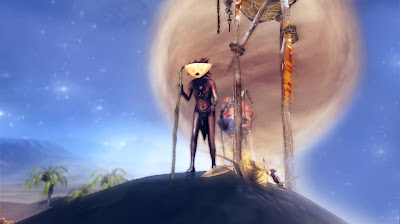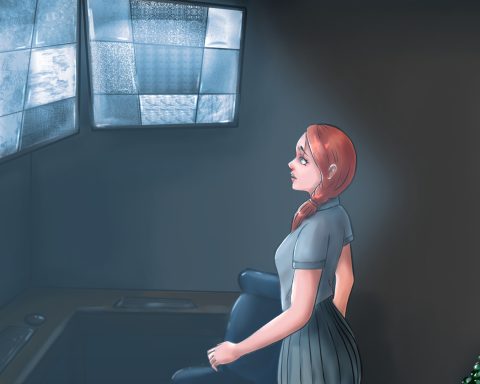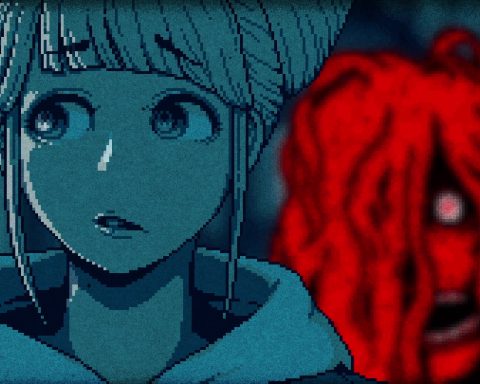 |
| We must trust in The Breath. |
We don’t pretend to understand The Breath. If it was the Ancient’s will for us to understand it, they would have told us. All we know is what it can do and how it can help us and, for the moment, that is enough. The shamans have decreed we are to journey to find what remains of the Ancients and, for that, we will need The Breath. So it has been awoken and we are starting on our way through this vast world, for better or ill.
 |
| Will The Music save us? |
The one thing I really wish they included was a sandbox or editor where you could create your own maps, or just interact with environments and try different things. The mechanics are so well executed and the game is so gorgeous, it would be easy to spend hours merely fiddling with a world to create mountains and then destroy them again.
I saw The Breath move giant clouds of sand and dirt across this island chain, breathing it in as if it were air and exhaling it in the water, creating a small land-bridge to the next island. It was an astonishing sight: to think that The Music could be powerful enough to summon such a spirit gave us hope that perhaps it could also save us from this great Water. The shamans sent one of us to explore the new island, trusting that The Breath would lead us in the right direction. Sure enough, hours later our friend was seen returning, a great blue halo flying far above his head. When he returned, he seemed to be in a daze; she went directly to the village totem and pressed her hands against it, muttering things under her breath. The halo shifted to the totem and, immediately, the shamans announced our salvation had arrived.
Today I learned to trust in The Breath. Truly, it will lead us to the Ancients and our salvation.
– Nick J.







